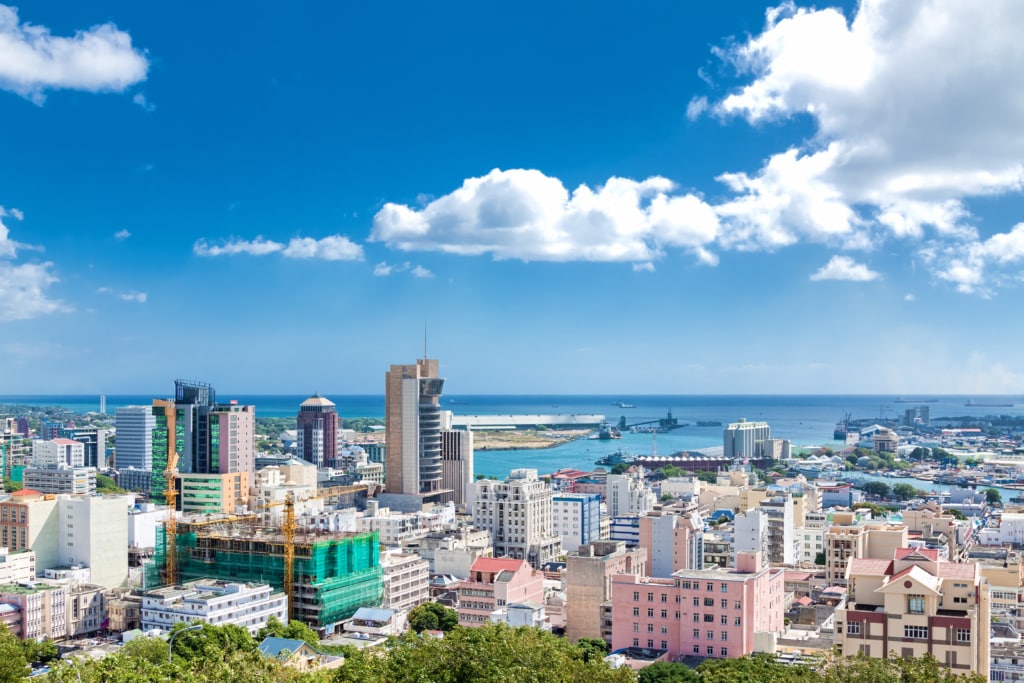Expat financial advisor in Mauritius part 2 – Part one is here.
Economy of Mauritius

Investment in the country’s economy. The application must be submitted 8 years earlier, and the invested amount must be at least 500 thousand dollars.
Registration of permanent residence when investing became possible in accordance with the law, which was adopted in 1973.
The economy of Mauritius is based on sugar production (sugar cane is grown on about 90% of the cultivated farmland), tourism and the textile industry. Recently, offshore and banking business has been developing, as well as fish catching and processing. More than 32,000 offshore companies are registered in Mauritius. The banking system of Mauritius is considered to be relatively developed and consists of traditional, offshore, and Islamic banks.
GDP purchasing power parity (PPP): $ 24.51 billion (2015 est.) GDP per capita in 2015 – 19.5 thousand dollars (88th place in the world). Below the poverty level – 8% of the population (in 2006).
Agriculture employs 9% of workers, industry – 30%, service sector – 61%.
Thanks to the Dutch, in 1639, a storm-resistant, easily cultivated, and perennial plant, sugar cane, was brought to Mauritius from Java from the island of Java, from which sugar and excellent Mauritian rum have been and continue to be obtained for hundreds of years.
Thus, this invaluable “gift” from the Dutch determined the agricultural future of the country, making the cultivation and processing of cane the main occupation of the inhabitants of the entire island. Until independence from Britain in 1968, the entire economy of Mauritius was based on the export of a single commodity – sugar. Roughly half of the island’s area was used for agriculture, and 90% of that land was given over to sugarcane plantations!
Any change in world sugar prices or production volumes significantly affected the country’s economy in the late 70s of the XX century, because at that time the share of sugar exports to Mauritius was 93%. The sad picture of economic instability since independence was complemented by high unemployment and low population growth.
That is why all the forces of the Mauritian government in the first decades of independence were thrown into diversification and stimulating economic growth.
Using the experience of other countries, such as Hong Kong, Singapore and Taiwan, Mauritius relied on re-export, i.e. attracting foreign investment through tax incentives and other incentives. The economy of Mauritius “revived” and showed significant growth. The positive dynamics in the manufacturing sector contributed to the decrease in the unemployment rate.
Who is a financial advisor?

A financial advisor is a very important person. He is an investment specialist who knows how to save and multiply funds. He evaluates the financial condition and resources of his client, develops an investment policy for him, a scheme for working with banks, brokerage, and insurance companies, helps him make financial decisions and manage the budget. Ideally, a consultant is able to solve all the financial problems of a company or individual.
This is a specialist who advises on financial policy issues at different levels. He can work both as an individual and as a legal entity. This does not change its function.
He advises clients on saving or increasing money, assesses their financial condition, develops investment policy, a scheme for working with banking institutions, and makes management decisions. And most importantly, it helps expats understand the financial system of the country they are moving to.
Today we will mainly focus on three main categories of financial advisors, namely:
- bank financial advisors
- local financial advisors
- online financial advisors
The consultant must be well versed in a specific area of finance, but can also be a multidisciplinary professional. Let’s now take a look at each type of financial advisor mentioned.
Bank financial advisors
Moving abroad, mainly expats start their financial careers by opening a bank account. Choosing the right bank and the right account is a rather complicated process that you will have to figure out on your own. Foreigners in Mauritius need to consult with the bank’s financial advisor to make sure they have made the right choice.
This type of financial advisor is very necessary when expats are dealing with various types of banking services. One of the most important things expats will need when investing is a savings account.
A savings or investment account is a type of account that offers customers an easy way to withdraw or deposit money anytime, anywhere without restriction. It is the best choice for both those who want to keep their money safe and those who need to use their money every day.
Local financial advisor

There are many misconceptions about the role of a financial advisor and the differences between financial market professionals. The reality is that having an expert to help you navigate the financial market and tailor your catering investment to your individual needs can be extremely beneficial in the long run. Especially local fiduciary consultants who are legally and ethically bound to always put you first.
Many people prefer a local financial advisor because of the convenience, interaction, and more. Here are the main reasons and benefits of choosing a local consultant:
Personal communication
Yes, some people only trust personally, especially when it comes to money. If you are uncomfortable doing business on the Internet, a local financial advisor may be the right fit for you.
Many people prefer personal, human contact – especially the older generation raised on bricks and mortars rather than doing business online, which is why a local financial advisor is the preferred advisor.
In addition to managing your investment portfolio, the benefits of a traditional local financial advisor include the ability to discuss your questions and concerns as often as you want, anywhere.
Face-to-face meetings can help you clarify your costs and goals by making an assessment appointment and scheduling regular reviews. All consultants are individual, which is why it is so important to take a closer look and ask questions to find someone who suits your individual needs.
Local experience
Mauritius is a foreign country and for many expats the laws may be different, investment options, savings accounts, and more may require different skills.
The key decision is a local financial advisor. They are usually educated and focused on the laws and regulations that they follow in the country. So they are a great resource if you are looking to invest locally to drive growth in your area, city, or state.
Keep in mind that local investment can bring you two rates of return, one directly to your portfolio and the other through your community. There is growing evidence that, compared to their non-local counterparts, local businesses have two to four times the impact on local economic development for every dollar spent on them.
So, if you have an investment portfolio that includes local businesses, your dollars will continue to circulate and improve the well-being of your entire community by creating new jobs, increasing income, and ultimately supporting funding for schools, parks, police. and fire services; and safe and prosperous areas.
An expert, local financial advisor can help you with due diligence to make sure your local investment makes sense.
Pained by financial indecision? Want to invest with Adam?
Adam is an internationally recognised author on financial matters, with over 336.6 million answers views on Quora.com and a widely sold book on Amazon



